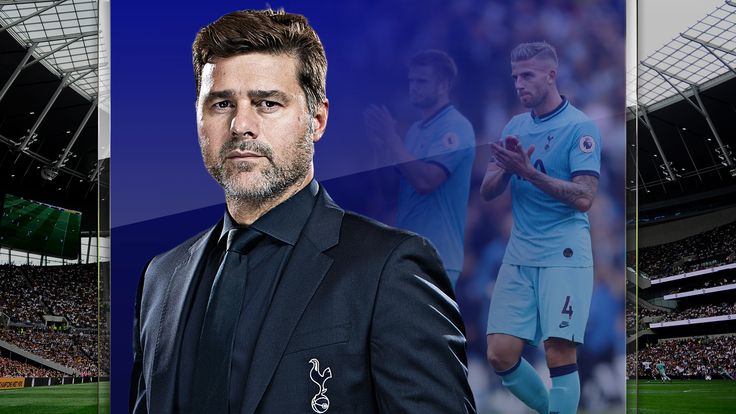Examining what's going wrong at Tottenham and why it could have serious consequences for Mauricio Pochettino's reputation

Tuesday 8 October 2019 15:08, UK
Not a Mauricio Pochettino team? On the face of it, it's an absurd observation. How could it not be? All but one of the Tottenham players who started the 3-0 defeat to Brighton have been at the club for more than three years. Half of those have been there for more than six years. That continuity has been integral to their success. Now it is a problem.
It was the fourth time since September that Pochettino has named a Tottenham team with an average age of over 28 years old. Having had the youngest starting line-up in the Premier League in each of his first three seasons, Spurs now possess the fourth oldest in the competition. It is more than a quirk. It's a fundamental issue facing this manager.
Pochettino loves working with young players. They are coachable. Willing to learn. Even when an older player is a model professional with good habits, he is instinctively sceptical. For example, some years ago he was left bemused by another Premier League club opting to bring in a highly respected ageing midfielder as he felt the player's legs had gone.
That move actually worked out but it's a revealing insight because, more than anything else, the reason why Pochettino loves working with young players is due to their superior energy levels. His idea of football requires his team to win the ball back quickly. A Pochettino team at its best is a nightmare to play against. Endless pressing. Perpetual motion.
From his time at Southampton, where he soon won over the squad thanks to the clarity of his commitment to a high-pressing game, to the transformation he instituted in Tottenham's style of play, this intensity has been the hallmark of any Pochettino team. It is the starting point, the platform upon which everything else is based. His philosophy.
Nobody would have recognised the team that turned up at Brighton as a Pochettino team. But the real issue is that this was not a one-off. There has been a change. Tottenham no longer press from the front. They are not winning the ball so high up the field and as a result they are not only struggling to create as many chances but they are easier to play against.
The number of pressed sequences - those where the opposition has three or fewer passes in a sequence, and the sequence ends within 40 metres of their own goal - has dropped alarmingly. The statistics show what even the naked eye can spot - Tottenham are winning possession of the ball in the final third far less than before and far less than their rivals.
For Pochettino, perhaps more than any other coach at the top end of the game, this matters. Ask anyone what makes Jose Mourinho a great manager and his two Champions League successes will surely form part of the answer. The same is true of Pep Guardiola, while Jurgen Klopp has now won major trophies at both Borussia Dortmund and Liverpool.
Pochettino does not have those medals but he had something else. A style of play that was unmistakeably his and one that he had demonstrated was repeatable at different clubs. It had not brought silverware to Spurs but it had maximised the potential of the playing squad and there was reason to believe that, with more money and luck, success was inevitable.
What now? Up until recently, it could be argued that older players were too set in their ways to be moulded into his modern way of playing. In time, those who grew up schooled in his approach would be a different proposition altogether, perhaps even the perfect fusion of enthusiasm and experience. Physically able to do it. Mentally ready to do it.
Tottenham's decline raises questions about the legitimacy of that logic. Some of it can be explained away by the behind the scenes issues. By players in the final year of their contracts no longer committed enough to buy into these ideas as they once had. It would be a mistake to underestimate the impact that this is having on this Spurs squad.
But it doesn't quite excuse the manager's role in this entirely.
Pochettino had pushed for an overhaul. No doubt he had recognised the urgency of the need for change. But after a long period in which it was suggested that Tottenham were a young team on the up, one still learning how to get the small details right, it is problematic to now conclude that he cannot make it work because these players are too old.
If it is the case, as it seems to be, that Pochettino's methods work best with young players, does that put a natural cap on what he can achieve? If he has aspirations, as he surely does, of working at the biggest clubs with the biggest budgets, will this feature of his managerial record hold him back? They are questions that are now hanging over Pochettino.
Whatever happens now, his Spurs legacy is intact. He has overachieved so much and for so long, that nothing can change that past. But the danger for a coach widely regarded as the game's next big thing is that there are conclusions other prospective employers could now draw from all this that will affect his future. Pochettino's sky high reputation is taking a hit.